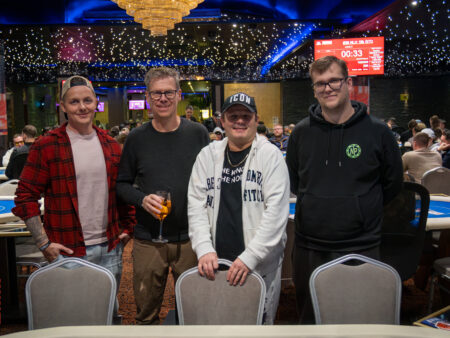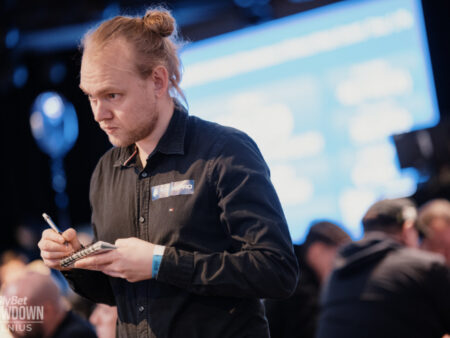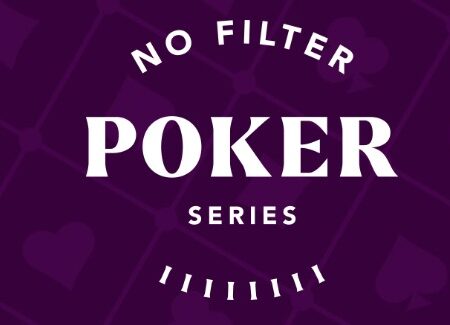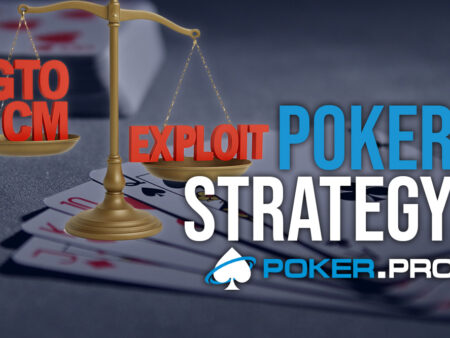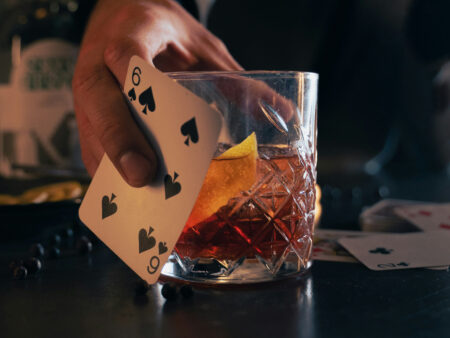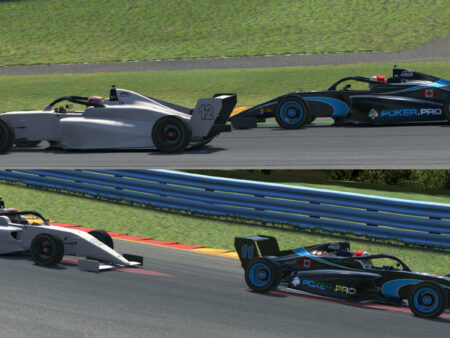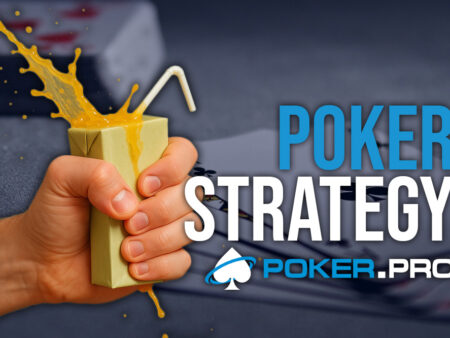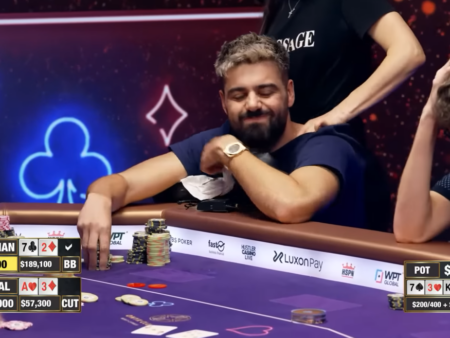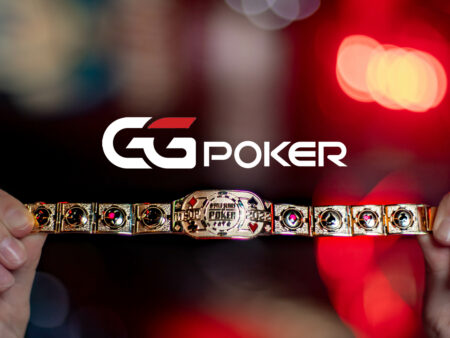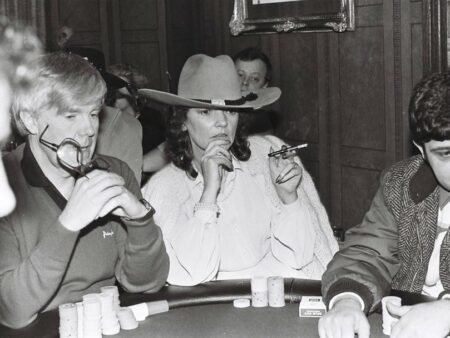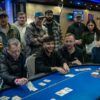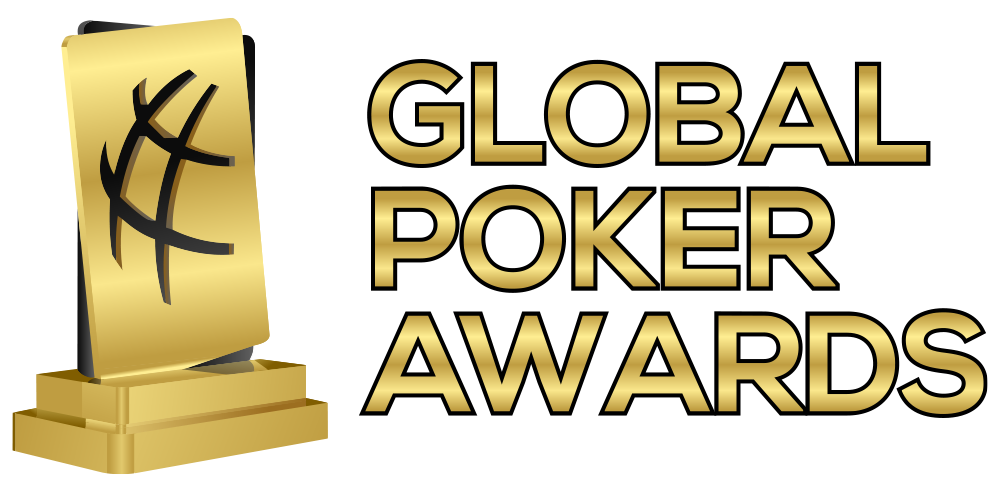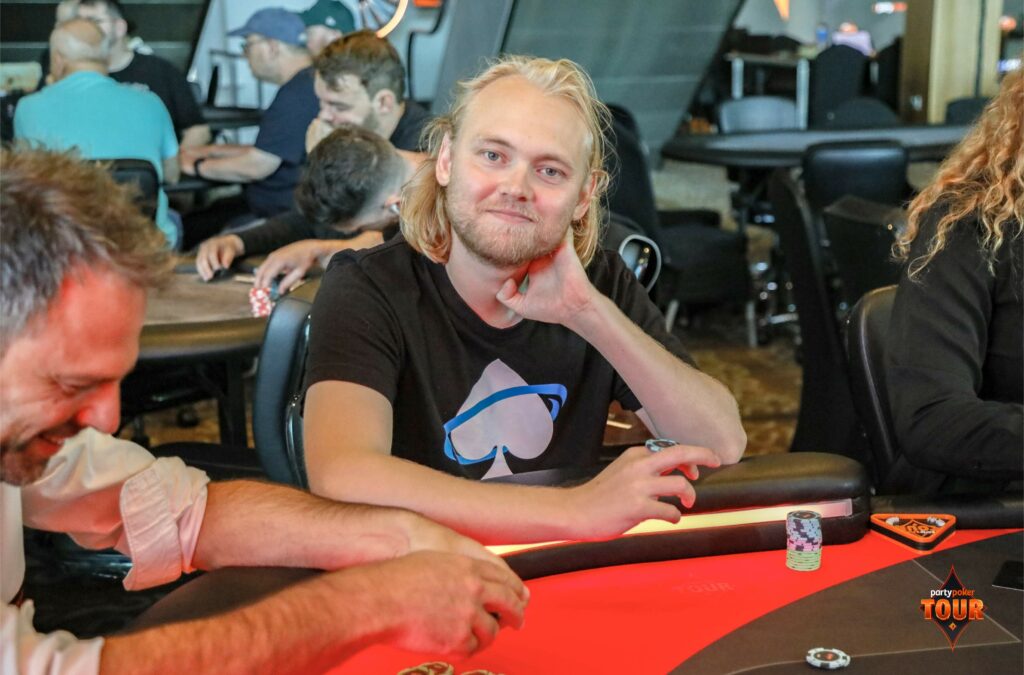
Before I wrote my first poker-related chronicle in 2023, I had been working more or less only as a tennis coach. It’s an occupation that has given me a ton of experience, and I wouldn’t trade it for anything in the world. When I’m not on the road reporting from various poker events all across Europe, I still coach aspiring tennis players from time to time in Sweden. God knows tennis is an incredibly challenging yet rewarding sport, and one could argue that practicing tennis not only makes you better at the sport and a stronger athlete, but it also teaches you about life, unexpected scenarios, and how to handle tough decisions under immense pressure.
I was introduced to the game of poker after high school and started playing recreationally, both live and online. It quickly became evident to me what my natural strengths and weaknesses were at the poker table, and considering I was still playing and working with tennis full-time back then, I started to reflect on the similarities between the two activities. What had tennis taught me that I could apply to my poker game? The more I thought about it, the more I realized how similar I behave on the court and in the casino. To be honest, the resemblance is uncanny. Everyone loves aces in both tennis and poker, but let’s break down some other similarities the two activities share.
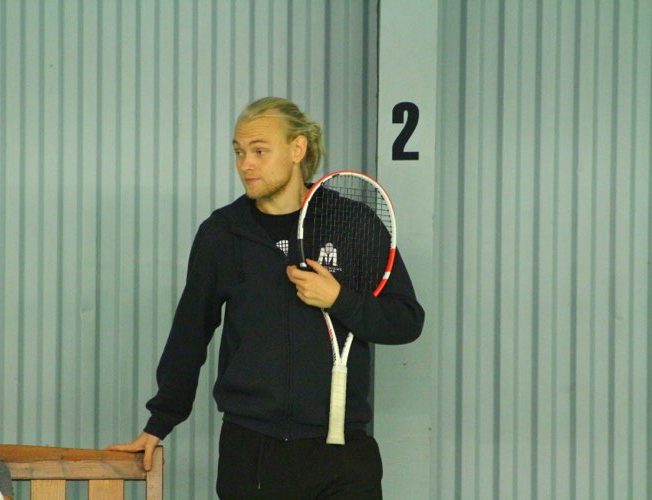
Five Crucial Skills
I’m aware that not all of our readers may be hardcore tennis nerds as I am myself, so I’ll do my best not to be too niche and stay away from some tennis terms that may be unfamiliar to the average poker player. That being said, having basic knowledge of tennis could offer you a better grasp of the thesis I’m about to present. Depending on how deep you want to dive into this matter, the similarities between tennis and poker could be endless, but I’ve chosen to elaborate on the five most crucial things I’ve learnt from hitting a fuzzy yellow ball over the net for 24 years that I’ve applied to my poker game.
It’s also worth mentioning that I’m average at best, both when it comes to poker and tennis. These five similarities are things I’ve personally identified.
Number One: Patience
Generally speaking, there are two types of tennis players: passive players who prefer to stay a couple of meters behind the baseline and hit deep balls back to their opponent, waiting for them to make a mistake, instead of trying to finish the point with a winning shot themselves. Then, there’s the offensive player. Stepping into the court, taking the ball on the rise, trying to finish the point early with a down-the-line shot, and having a clear vision of closing the net.
Don’t get it twisted; no matter your preferred playing style in tennis, patience is always crucial. That being said, the defensive players rely more on their patience than the offensive ones. When I started playing poker, my first mentor (who, funnily enough, was also an old tennis coach of mine) emphasized the importance of playing tight and waiting for good starting hands when you’re a beginner. We all know this isn’t only important for newbies; it goes without saying that even the most experienced poker professional must display great patience, and sometimes, you must be able to fold for hours waiting for a playable hand.
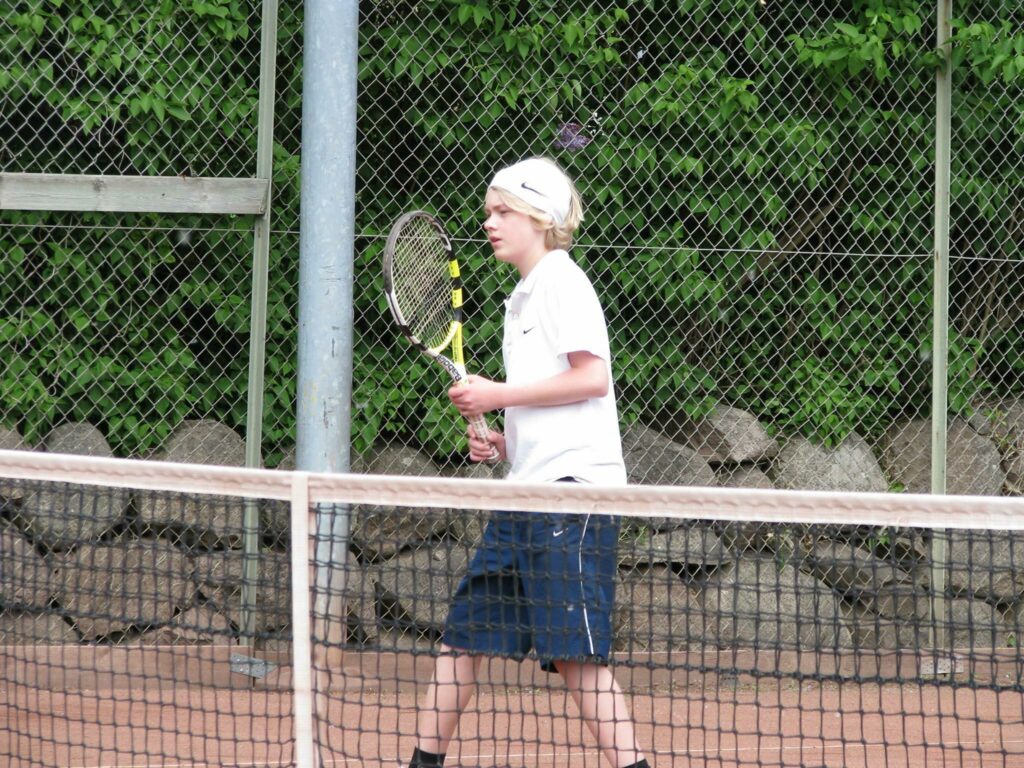
I’ve always been the defensive tennis player, and before becoming the old man I now am, I was – if I may say so myself – somewhat fast around the tennis court. I ran back and forth along the baseline, forcing my opponent to engage in longer rallies, often 40 shots or more. Thanks to my tenacity on the tennis court, I don’t get tempted to play marginal starting hands in poker, a crucial skill that many players (or should I say fish?) struggle to master.
Number Two: Don’t Take Risks
Imagine this: you check-raise a K♠J♠4♦ flop with your A♠10♠ holdings. You continue building the pot with a big bet on the 10♥ turn. Your opponent has called you rapidly and confidently on every street, and then, the river bricks out. Suddenly, you’re faced with a tough decision: a large chunk of your stack is in the middle, but you’re quite sure your opponent holds a king. Do you pull the trigger, or do you opt for the check?
This “skill” is perhaps the most controversial one on the list, as it has probably saved and cost me a lot of money throughout the years. In a scenario like the one described above, I mostly tend to go for the passive play – checking and effectively surrendering the pot. This is very similar to those times when my tennis opponent hit a short ball and I needed to attack it (even the passive player must take the opportunity to strike when it presents itself). Many tennis players would go for broke and hit a hard, flat shot close to the base- and/or sideline, trying to end the point right there. Not me. Instead, I put the ball in the court with a good margin, hoping to get an easy ball on the next shot that I can finish with a volley or a smash.
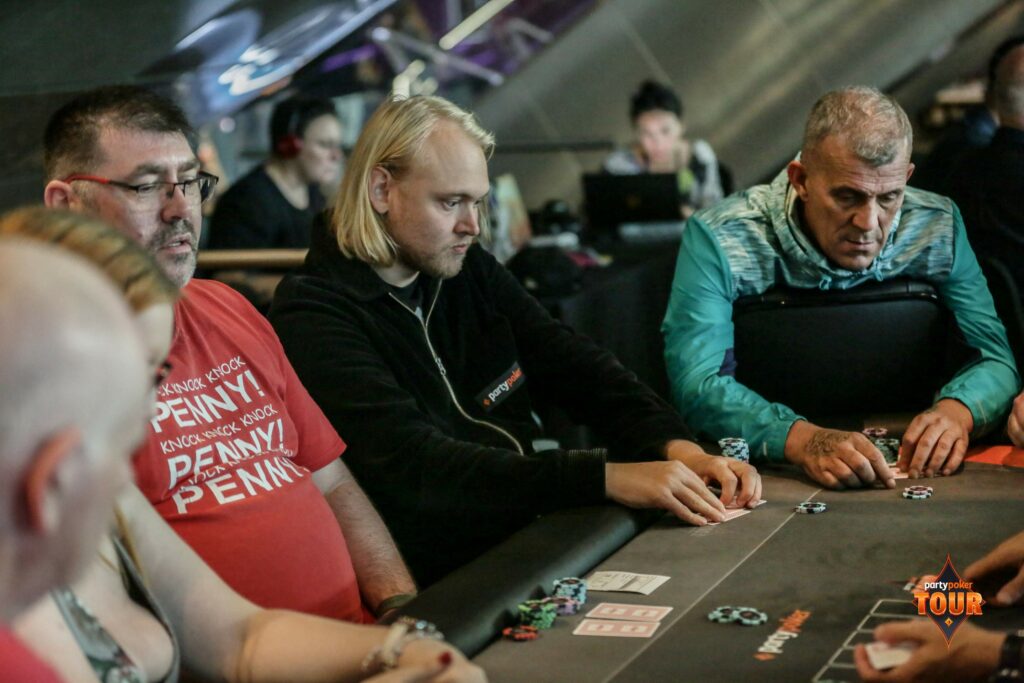
I think this is an important skill to have in poker – know when to hold ‘em, know when to fold ‘em – but it’s also crucial to have the guts to go for the more aggressive play. The top poker players are sublime at calculating risks and deciding when to pull the trigger, as is the case with the most prominent tennis players. While I do think I’ve saved a lot of money by surrendering pots in poker and won crucial points in tennis by playing it more safely, it has also cost me to win large amounts of chips, and my opponent has received another chance, passing me with a cross-court backhand.
Number Three: On to the Next One
Few feelings are worse in poker than getting it in good, only for your opponent to hit his or hers two-outer on the river. The equivalent of this in tennis would be having your opponent on a string, running far behind the baseline and defending for their life as you’re dictating the point, just for their ball to hit the net cord drop over on your side.
When a poker player goes on tilt, they start making bad decisions. We’ve seen it over and over again. When it comes to junior tennis in Sweden, the climate is that bad behavior isn’t allowed, and kids cursing or throwing racquets can be asked to leave the practice or be disqualified from the tournament. They get taught from a young age that it doesn’t help to let your emotions get the better of you. Same thing if you’re losing a point because the opponent got lucky; it happens. It is variance, just like in poker. In the long run, the better player will win. Accept that it happened, take a deep breath, reinforce yourself positively that you did the right play, and move on to the next point or hand. While I can’t say I’ve 100% mastered this skill in a poker context yet (I’ve never had an audible outburst, but I think too much about past hands), learning the core values of tennis growing up has definitely helped me compose myself at the poker tables.
Number Four: Never Underestimate Your Opponent
Good poker players never underestimate their opponents. The minute you let your guard down, thinking you’re superior to your competition, you expose yourself to being exploited in one way or another. When I sit down at a poker table, I always try to identify the more skilled players. That being said, I also respect the game of those players whom I judge to be a tad more inexperienced. This has helped me to keep my focus razor-sharp during all hands, no matter who’s in the pot with me.

I learned this lesson the hard way. Although I was never a top-ranked tennis player, I’d say I was decent, and I definitely was the favorite in some of my matches. I can recall at least two times that I warmed up with my opponent, thinking, “This’ll be a cakewalk, if I give 70%, that should be enough”. I lost both matches, just because I underestimated the strength of my opponent. When I realized they were better than I initially thought, it was too late to turn it around.
Number Five: Physical Endurance and Mental Toughness
To win the WSOP Main Event nowadays, you need to go through approximately eight 10-hour days of live poker. That’s a marathon right there, folks. Even such a prominent player as Phil Hellmuth has said, “Try getting up and playing from noon to midnight for seven days straight – it’s exhausting.”
Make no mistake about it; even though you spend the majority of your time playing poker tournaments—live or online—sitting down, it takes a toll on your body. Staying in good shape is crucial for poker players who want to manage the long grinds. While I can’t say I’ve been in a tournament long enough for my physique to come in clutch, this is something that I’ve been reflecting on.

I do have some facts to back up my claim; Jorryt van Hoof, who finished third in the 2014 WSOP Main Event, not only had a poker and a mental coach, but also a physics coach. He emphasized the importance of staying in shape in order to be up for the long poker sessions. Training with weights, doing yoga, mindfulness, and strict diets… nowadays, serious poker players leave nothing to chance. They’re doing everything they can to perform at the top of their game at all times, as they know they must be in a good state of body and mind to make the correct decisions.
It goes without saying that this is also crucial if you want to become a prominent tennis player. Tennis is an extremely physical sport that requires strength, speed, endurance, mental toughness, etc. If you’ve played two hours outdoors in 28 degrees Celsius (i.e., 82.4 degrees Fahrenheit) and you’re just about to begin the third and deciding set, usually, it’ll be the most fit opponent who wins.
A Unique Relationship
Perhaps you agree with some of my claims, or maybe they feel too far-fetched. Nevertheless, one can’t deny that poker players seem to appreciate tennis and vice versa. Patrik Antonius and Gus Hansen both were aspiring tennis pros growing up, before the path of life steered them into the world of professional poker. On the other side of things, well-merited tennis players such as Rafael Nadal, Boris Becker, and Hubert Hurkacz all enjoy a game of poker now and then.
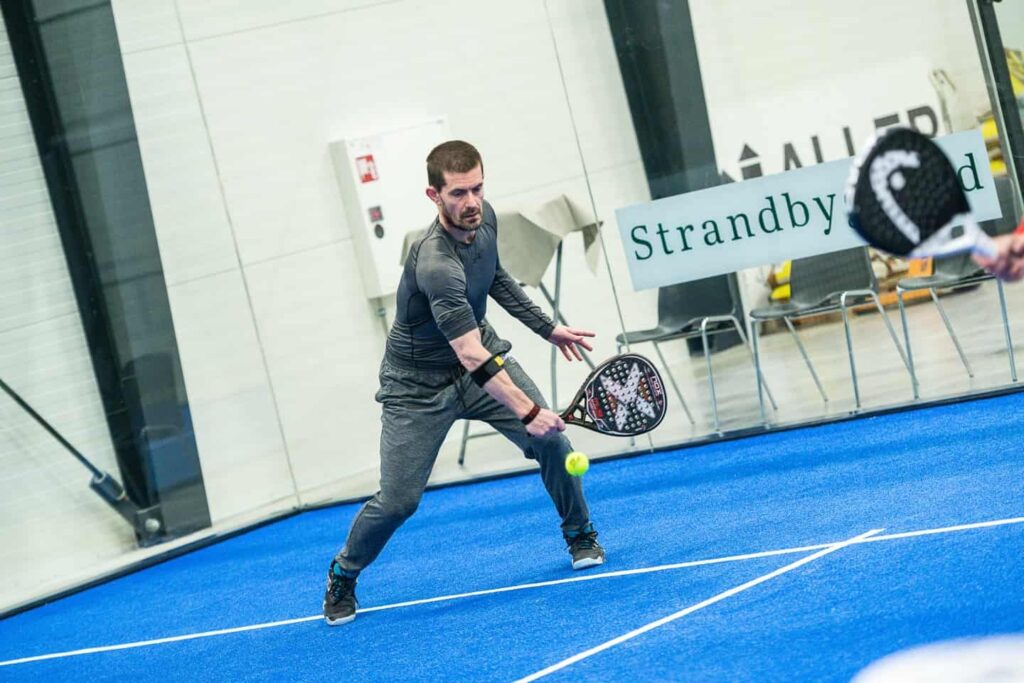
I would be a lunatic if I made the claim that tennis is the only sport that could teach you valuable skills to transfer to your poker game. By playing sports, you essentially learn valuable life skills that can be applied to many different aspects of life. I can only talk from personal experiences, and I’m convinced that tennis has taught me to stay humble, keep my patience, and channel my focus. Someday I will get my first-ever live poker tournament win, and when that day comes, I will give the game of tennis the shoutout it deserves.
